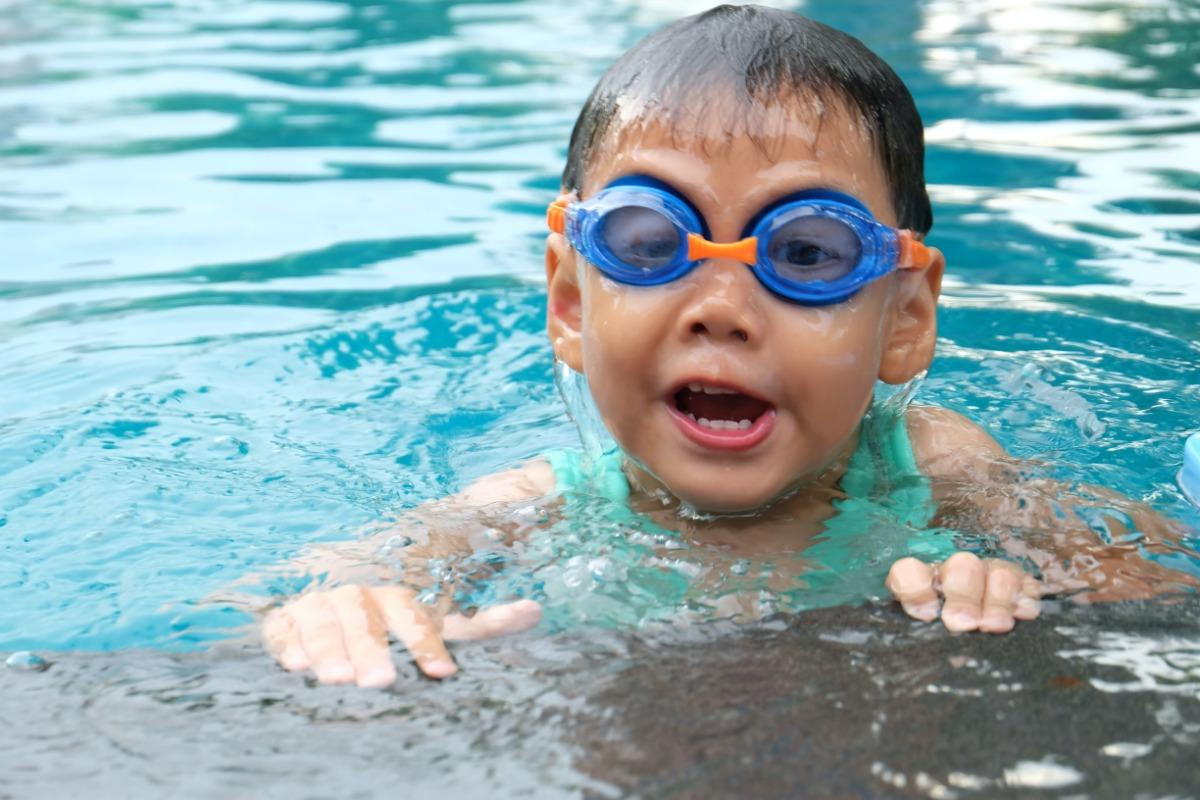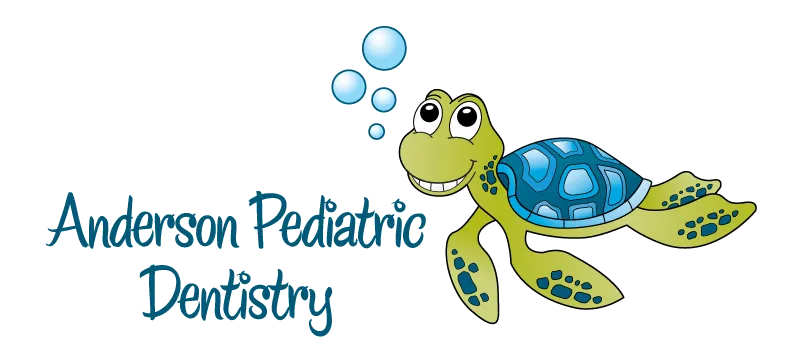Will Swimming Turn Your Child's Teeth Green?
posted: Jun. 08, 2020.

We’ve all seen the tell-tale signs of long summer hours spent in the pool - skin toasted coconut brown and blond hair tinted green. We know chlorine can turn light-colored hair green (Actually, it’s the combination of copper and chlorine binding together to form a film that sticks to the proteins in each strand of hair.), but can it do the same thing to your teeth? Can swimming in a pool turn your child's teeth green?
Your child's teeth may not turn green from time in the pool, but they can develop a swimmer’s calculus, which causes yellow or brown staining and sensitivity. While chlorine helps destroy harmful bacteria in a pool, too much chlorine can make the water acidic and more likely to damage the enamel on teeth. You may think your child’s teeth are not at risk because they don’t swim laps or spend all day in the pool, but swimming six or more hours a week can put your child’s mouth at risk. That risk increases for kids that are opening their mouths and allowing pool water to sit on their teeth- think of all the times Junior has put a big mouthful of water in his mouth to spray at his siblings or up in the air like a human fountain.
Pools that have been incorrectly chlorinated and are highly acidic (pH level below 7) are more likely to cause damage to your child’s teeth. The acidity of the water will break down the enamel, causing teeth to look yellow and discolored and may make the edges look transparent. The breakdown of enamel also leads to sensitivity to hot and cold liquids and foods.
The good news is that your child is not doomed to have stained teeth and they don’t have to spend their summer indoors. There are steps you can take to keep their smile healthy.
- Regular cleanings. Your Anderson Pediatric Dentist can help remove mineral deposits and other surface stains. Regular check-ups also allow us to spot enamel erosion early.
- Rules. Teach your child that they are not allowed to put pool water in their mouth- ever.
- Hydrate. Encourage your child to drink plenty of clean water (not pool water). Staying hydrated helps your body produce saliva, which washes away harmful bacteria and helps prevent cavities.
- Observe. When in public areas or on vacation, take a minute to inspect the pool linings, railings and ladders. If you notice spots of erosion, it’s likely that the water is too acidic and will do the same thing to your teeth. If you really want to be cautious, bring your own Pool pH strips and only swim in water that registers between a 7.2-7.8 on the pH scale.
- Brush. Use a soft-bristled brush and brush your teeth twice a day. Also, brushing after swimming can help. Just make sure its 20-30 minutes after you get out so that your mouth has time to neutralize some of the acids before you brush the enamel of your teeth.
- Protect. Drink fluorinated water and brush with a fluorinated toothpaste to strengthen your enamel.
- Call. Talk to your Pediatric Dentist if you have concerns or see changes in the appearance of your child’s teeth.
Anderson Pediatric Dentistry is here to help keep your child smiling through the summer. If you are looking for a dental home for your child, or need to schedule a routine check-up, call our office today at 864-760-1440 and let us give you Something to Smile About!
